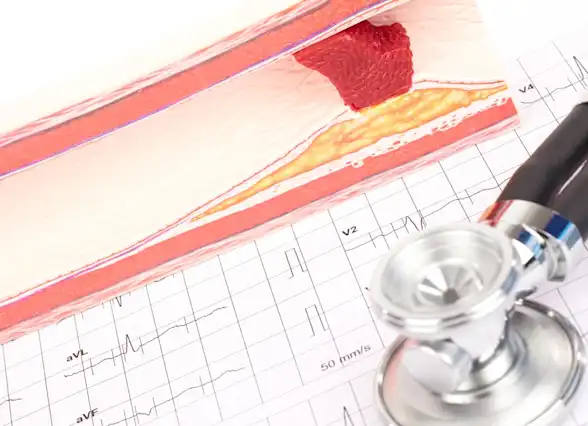Indications for Coronary Artery Bypass Graft (CABG)
Coronary artery bypass graft (CABG) is used to lower the risk of heart attack, or a second heart attack, caused by heart disease.
Get insurance benefits, legal documents, and medical records in one place

Helpful Highlights
Coronary artery disease (CAD), or heart disease, is the origin of most heart attacks.
Bypass surgery (CABG) is performed to prevent a heart attack, resolve an active heart attack, or foster better outcomes and quality of life after a heart attack.
Symptoms of CAD are like those of a heart attack, though often milder, with a couple of unique symptoms, as well.
A cardiologist may recommend a coronary artery bypass graft (CABG) to lower the risk of a heart attack in the face of severe coronary artery disease (CAD) - in other words, before a heart attack ever happens. A CABG is also performed, of course, in an emergency to treat a severe heart attack that is a threat to life. CABG also may be used to treat people who have heart damage after a heart attack and still have blocked arteries.
Symptoms of coronary artery disease (CAD)
Chest pain (called angina)
Frequent or persistent fatigue, maybe weakness
Faster than normal heartbeat at rest (normal is 60-100 beats per minute)
An irregular heartbeat (called arrhythmia)
Shortness of breath, usually with activity and not at rest
Swelling in the hands, feet/ankles, or even face
Frequent or persistent indigestion (heartburn, acid reflux)
Lightheadedness, maybe nausea
When CABG may be recommended
Other treatments, such as lifestyle changes (diet, exercise, habits) and/or medications haven't worked.
There are blockages in the heart that can't be treated with angioplasty (balloon or stent)
There are significant to severe blockages (> 70%) in one or more of the three large coronary arteries* that supply a major part of the heart muscle with blood, especially if the heart's pumping action is already weakened
*Left anterior descending artery and circumflex artery (that make up the left main coronary artery), and the right main coronary artery
Candidacy for CABG is based on several factors
The presence and severity of CAD symptoms
The severity and location of blockages in the coronary arteries
History and past treatment of heart disease, including surgeries, procedures, and medications
Response to other treatments
History of other medical problems, diseases, and conditions (called comorbidities)
Current quality of life
Age and general health and well-being
Family history of heart disease, heart attack, or other heart conditions
The goals of CABG
Improve survival odds
Improve the quality of life and decrease angina and other symptoms of CAD
Resume a more active lifestyle
Improve the pumping action of the heart
Lower the chances of an initial heart attack or second heart attack
RESOURCES
American Heart Association (AHA) - Heart Surgery & Recovery Resources
Cleveland Clinic – Coronary Artery Bypass Surgery
Johns Hopkins Medicine – Coronary Artery Bypass Graft Surgery
Mayo Clinic – Coronary Artery Bypass Surgery
No content in this app, regardless of date, should ever be used as a substitute for direct medical advice from your doctor or other qualified clinician.
Get more support and guidance on insurance benefits, medical records and legal forms.
Helpful brings together your insurance benefits, legal documents, and medical records in one personalized place — so you always know what you have, and never have to search again.

Technology for Health Tasks. Mental Health for the Tough Stuff.
Helpful connects your medical records, insurance, and caregiving tasks automatically. And when you need more than logistics, a therapist is here to guide you.
In-Network and Covered
For Individuals, Couples and Families
HIPAA Compliant, Data Stays Private


Healthcare Tasks Simplified

From syncing records to spotting drug interactions, Helpful does the heavy lifting, turning complex health info into clear tasks and showing you benefits you can actually use, giving you clarity and control over your care.

In-Network Mental Health

Our licensed therapists are here to support you and your loved ones through stress, burnout, and life’s hardest moments, with an inclusive, compassionate approach that works with most insurance plans.

Create Legal Documents

Plan ahead by creating will, trusts, advance directives and more, that ensure your wishes are honored in the event you can’t speak for yourself -with Helpful guiding you every step of the way.